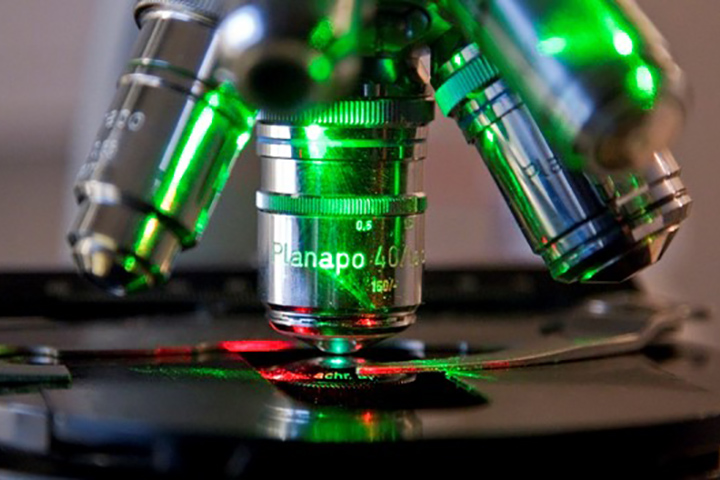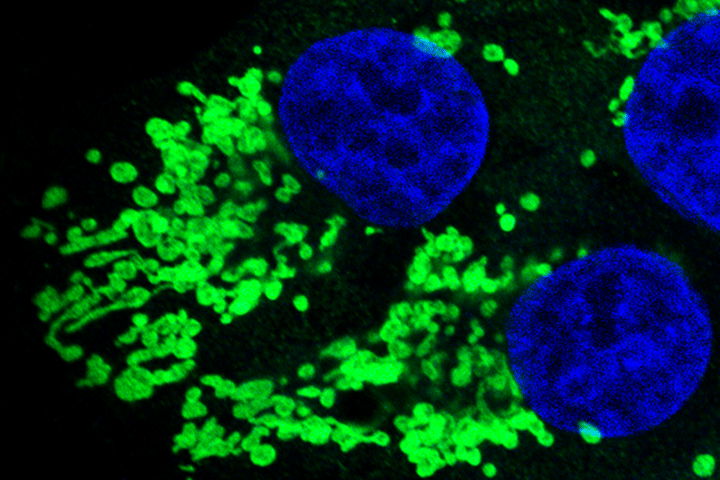A Year in Review: 2020

In March 2020, life as we knew it changed. The way we work, the way we gather, the way we each live our daily lives all felt upended, seemingly overnight.
The global pandemic of COVID-19 affected everything, including cancer care and research. COVID-19 brought new risks to cancer patients, whose immune systems are compromised from treatment, and often changed the way in which treatment is delivered in order to protect patients and those who care for them. A report, by researchers at Dana-Farber Cancer Institute (Boston, Massachusetts) and other institutions, suggests that while COVID-19 has complicated the treatment of cancer patients, it has also spurred creative solutions to challenges in clinical care. In addition, research into the new disease is benefiting from insights gained over years of cancer research.
Although times were challenging—and still remain so—pancreatic cancer physician–scientists, discovery scientists, and others devised ways to continue their research. Many labs were temporarily shuttered in the early days of the pandemic and clinical trials were either halted or did not accept new study participants. But now research is cautiously normalizing. Labs have reopened, often with staggered staff to ensure social distancing, and clinical trials are beginning to recruit patients again. With the promise of large-scale immunizations in the near term, the future does indeed look a little brighter.
Despite the challenges, the pancreatic cancer community did not stop their efforts to better understand the disease with hopes of finding better treatments. Here is a recap of just some of the highlights of the past year.
Toward More Personalized, Precision-Based Treatment
As we understand more about the basic biology of pancreatic cancer, the hope is to provide personalized, precision-based treatment based on the molecular makeup of an individual’s tumor. Pancreatic cancer is incredibly heterogeneous, meaning that one person’s tumor can differ dramatically from another person’s tumor. Earlier this year, data from PanCAN’s Know Your Tumor® initiative was published in the journal The Lancet Oncology. The data showed for the first time that pancreatic cancer patients who are able to go on therapies that match their tumor biology live an average of one year longer compared to patients who don’t. The most common changes seen in Know Your Tumor® reports were defects in the cancer cells’ ability to repair DNA damage, such as BRCA mutations. Chemotherapies that contain platinum, like oxaliplatin or cisplatin, are particularly effective treatments in patients with these changes. Other tumor changes predict patients’ response to an immunotherapy drug called Keytruda, targeted therapies like Vitrakvi, or other standard or experimental treatment options.
Precision Promise Study Hopes to Streamline Clinical Trial Process
A bold effort also spearheaded by PanCAN hopes to change the pancreatic cancer treatment dynamic with a new trial called Precision PromiseSM , a phase II/III study focusing on personalized, molecularly-driven, science-based treatments for study participants. Its goal is to streamline the clinical trial process in hopes of bringing effective treatments from the laboratory to clinical practice more quickly and efficiently. The multi-site trial is open to participants with metastatic pancreatic cancer who have not yet had treatment, or whose disease has progressed on first-line treatment. One of the hallmarks of the trial is its so-called “adaptive” design, which allows for the testing of multiple therapies at the same time, and allocates patients to treatment arms based on the probability of success. In other words, the trial adapts to the evolving results.
Validating Biomarkers
A new phase II study from Canada called NeoPancONE is focused on validating a tiny protein called GATA6 as a potential biomarker of response in upfront resectable pancreas cancer patients who receive neoadjuvant chemotherapy (before surgery) as well as adjuvant chemotherapy (after surgery.) Study participants in the NeoPancONE trial will receive modified FOLFIRINOX (mFOLFIRINOX) in the neoadjuvant setting. In the post-surgical adjuvant setting they will receive either mFOLFIRINOX or another regimen. Researchers in the NeoPancONE trial want to prove that GATA6 can actually act as a biomarker that would inform doctors and their surgical pancreatic cancer patients who would benefit most from neoadjuvant chemotherapeutic treatment, and, eventually, what drugs may work best depending on their tumor type.
Moving Forward with “Challenge Grant” Research
In an effort to spur innovation and to bring the most promising research quickly to patients in clinical trials, the Pancreatic Cancer Collective, a collaborative effort between the Lustgarten Foundation and Stand Up To Cancer (SU2C), has awarded additional second-round funding of up to $16 million to four teams of top researchers as part of its “New Therapies Challenge Grants.” In November 2018, the Pancreatic Cancer Collective awarded seven teams up to $1 million each to pursue preclinical work, over 13 months, including several projects seeking to repurpose drugs approved for other uses for their potential to treat pancreatic cancer. The four teams that received second-round funding demonstrated the most promising preliminary results, which would allow them to take these potential therapies into clinical trials.
A Better Understanding of Subtypes
Scientists at Cold Spring Harbor Laboratory (Cold Spring Harbor, New York) created the first mouse model of pancreatic cancer that recreates two subtypes of the human disease. The model, (published online in July and in print in October 2020) in Cancer Discovery, will help researchers investigate why some pancreatic cancers are more aggressive than others and what causes them to progress, paving the way to targeted therapies.
Recently, molecular analyses of patient tumors have identified two subtypes of the disease that behave very differently. The first, known as classical PDAC, is slow to progress and can be responsive to chemotherapy. The second, known as basal-like PDAC, spreads quickly and usually does not respond to chemotherapy.
Going Virtual
Large major conferences play an important role in the sharing of scientific discoveries. While it took some quick planning, major conferences like the American Association for Cancer Research conference on pancreatic cancer went virtual. The successful meeting showcased many of the new cutting-edge discoveries and promising advances in the understanding and treatment of pancreatic cancer. Topics included, among other things: precision medicine and early detection; the tumor microenvironment and its effect on immunotherapy; metabolism and homeostasis; emerging research areas and clinical advances.
Gaining a better understanding of the current state of AI and where the science needs to go to achieve earlier detection was the focus of the AI and Early Detection of Pancreatic Cancer Virtual Summit, presented by the Kenner Family Research Fund and the American Pancreatic Association. The Summit brought together experts in AI to discuss current efforts and challenges in early detection. Subject areas discussed included the progress, problems, and prospects of early detection, AI and machine learning, current efforts in AI and early detection, collaborative opportunities, and insights from government, industry, and advocacy groups. The goal of the Summit was to combine these various areas of expertise to develop a risk stratification model for early detection of pancreatic cancer using AI and machine learning.
An Update on Let’s Win
Let’s Win is a virtual platform, so when the pandemic reached the U.S. we were already uniquely positioned to continue our mission with minimal change. We continued to publish original articles on innovative science, managing your care, clinical trial news, personal journeys with pancreatic cancer, and more on our established schedule and even managed to provide 19 original articles on COVID-19 to better keep our pancreatic cancer community up-to-date with verified information from experts. In March, our Twitter-based PancChat also focused on COVID-19. This platform continued to reach a wide, diverse audience with such topics as basic pancreatic cancer education, genetic testing, how to interpret science headlines, and other relevant topics. We would again like to thank our community for their continued support of our efforts. We look forward to serving you in the upcoming year and wish you all the best in 2021.






